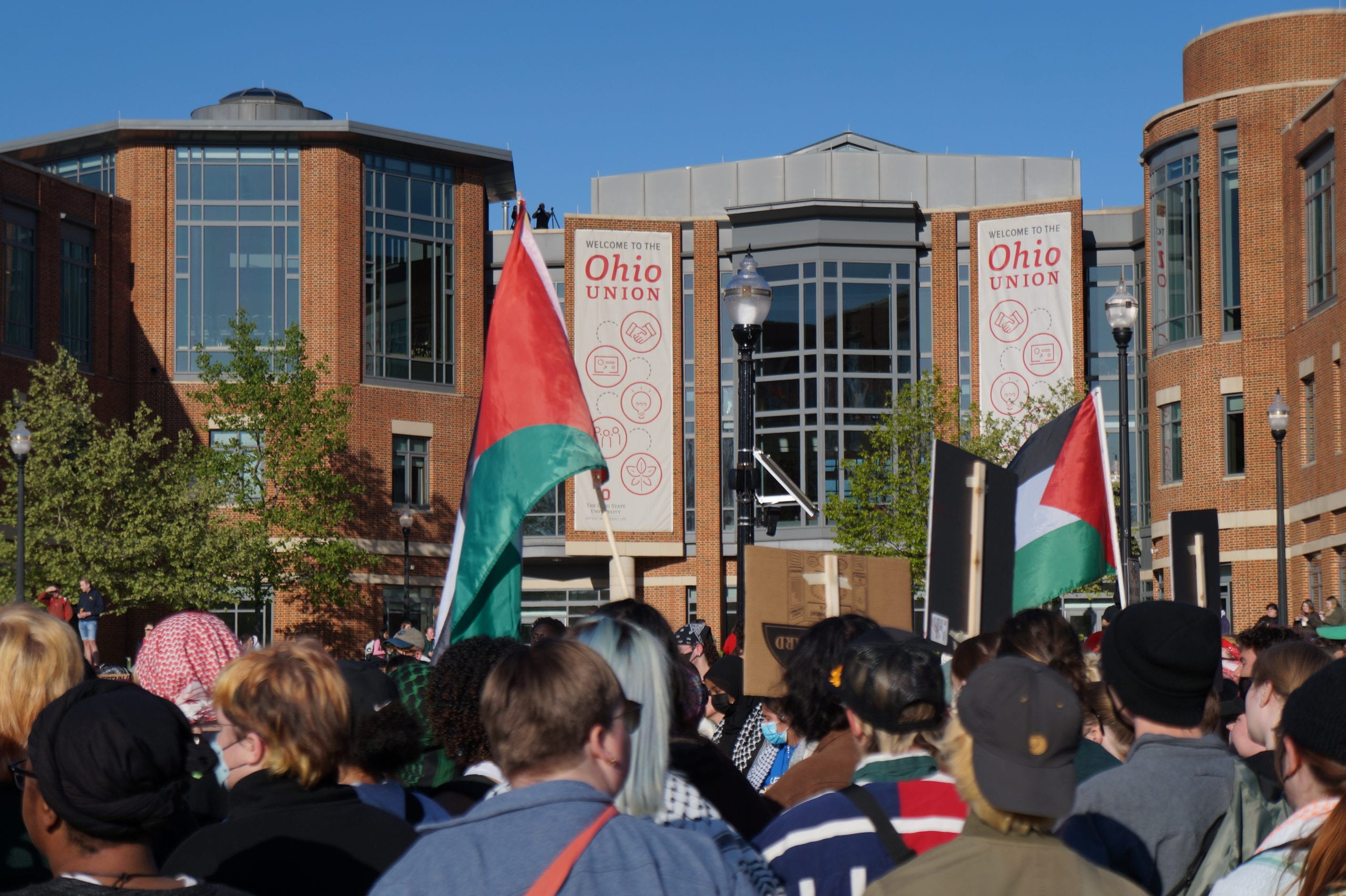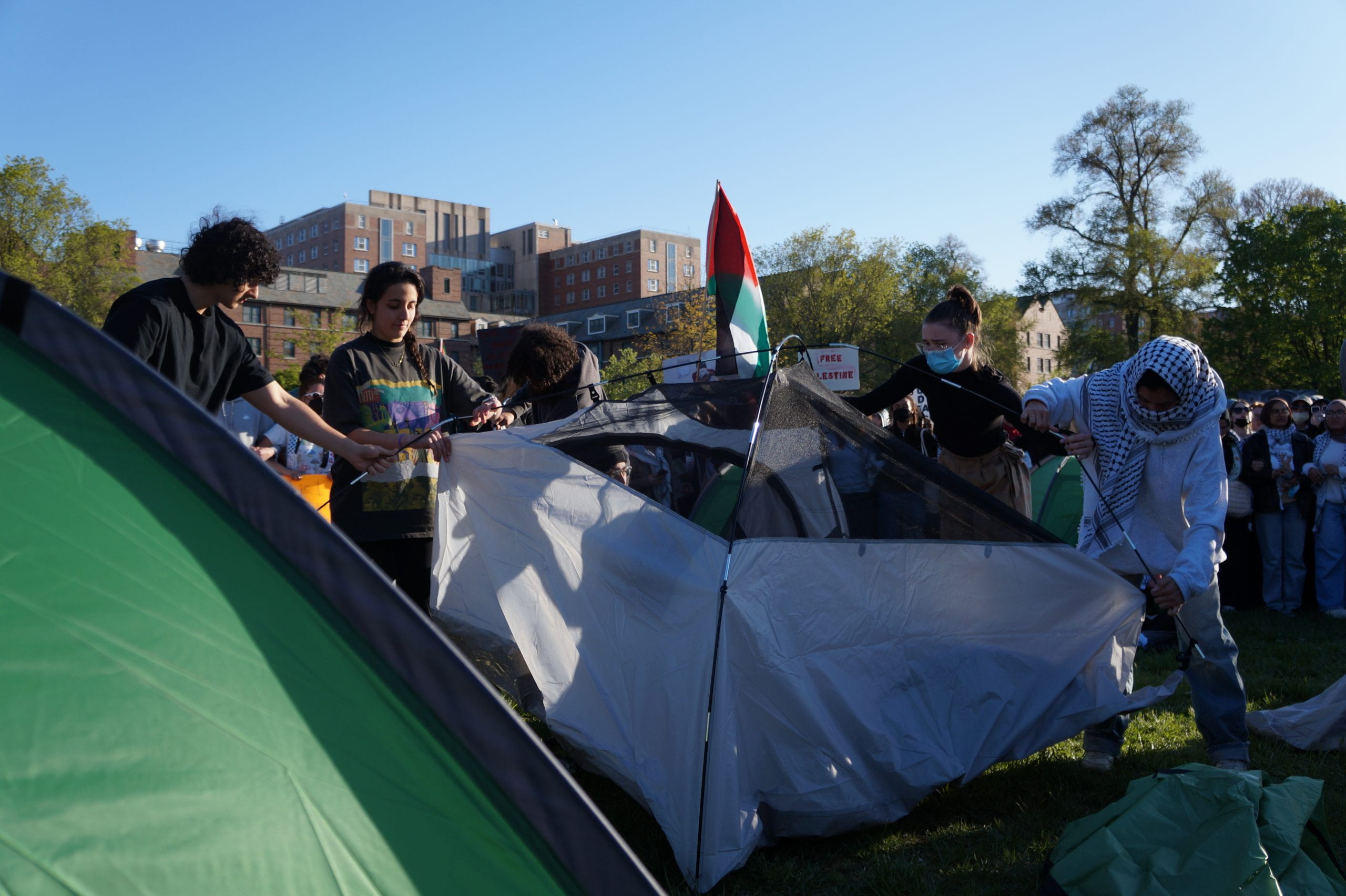
On Monday, university President Ted Carter Jr. released a university-wide statement addressing Tuesday’s and Thursday’s protests, as well as the arrests that followed both events. Credit: Sebastian Griffith
In an effort to “set the record straight” surrounding the 36 arrests at a pro-Palestinian protest on the South Oval, university President Ted Carter Jr. released a university-wide email statement Monday.
This statement marks Carter’s first direct response to the arrests that took place at Tuesday’s and Thursday’s on-campus protests. Carter said the arrests were not in retaliation to protesters exercising their right to free speech, but rather an enforcement of the university’s space rules, which prohibit certain activities on Ohio State’s campuses including encampments and excessive noise.
“I value and welcome free speech. I have spoken to this since the day I arrived here at Ohio State,” Carter said. “As many of you know, I wore the cloth of our nation for 38 years to support and defend these rights. What occurred on our campus on April 25 was not about limiting free speech.”
On Thursday, 36 protesters — including 16 students — were arrested on the South Oval during a protest for divestment from Israel and against the war in Gaza. Ohio State police and Ohio State Highway Patrol were both on the scene and issued several warnings to protesters over the course of five hours.
Over 350 protesters formed a circle by linking arms with each other, protecting at least 10 tents set up in the crowd’s center. Carter said creating this encampment was a violation of the space rules, which were relayed to protesters that evening and earlier that day when they originally tried to start the encampment, leading to three arrests.
“[Encampments] create the need for around-the-clock safety and security resources, which takes these resources away from the rest of our community,” Carter said. “They also create undue pressure on proximate buildings, in this case the Ohio Union, for restrooms and personal hygiene. During Finals Week, the Ohio Union is not only a study space for students, but it is also an exam location, including for students with disabilities.”
Carter also said there was concern over disturbing students in dorms near the South Oval.
“In this case, with the intent of creating an ongoing, 24/7 activity, the encampment also created a disturbance to our residential community in Baker Hall,” Carter said.

University President Ted Carter Jr. released a statement on Monday that specifically discussed how encampments violate the university’s space rules. Credit: Sebastian Griffith
Universities around the country have seen students creating encampments to protest the war in Gaza, leading to hundreds of arrests and in some cases, the cancellation of classes or graduation ceremonies. Carter said this will not happen at Ohio State, and the university confirmed it will not consider canceling commencement at this time.
“Sadly, in recent days, I have watched significant safety issues be created by encampments on other campuses across our nation,” Carter said. “These situations have caused in-person learning and commencement ceremonies to be canceled. Ohio State’s campus will not be overtaken in this manner.”
Carter said he is open to criticism of these arrests, even after his clarifications. Additionally, Carter said he “will always listen to others’ concerns.”
“In short, I take my responsibilities very seriously and am accountable for outcomes. Arrests are not an action that I or any member of the administration take lightly,” Carter said. “I have stated since the first day I was announced as president that safety will not be compromised.”
Students have organized various protests at Ohio State since the start of the Israel-Hamas war on Oct. 7, 2023, and Carter said he appreciates this politically active presence on campus.
“I also want to recognize and thank the many members of our community who have been committed to teaching, learning, listening to and supporting one another as well as peacefully exercising their First Amendment rights on our campus over these past months,” Carter said. “This is what I know our Buckeye community is capable of, even – and especially – when it is most difficult.”


